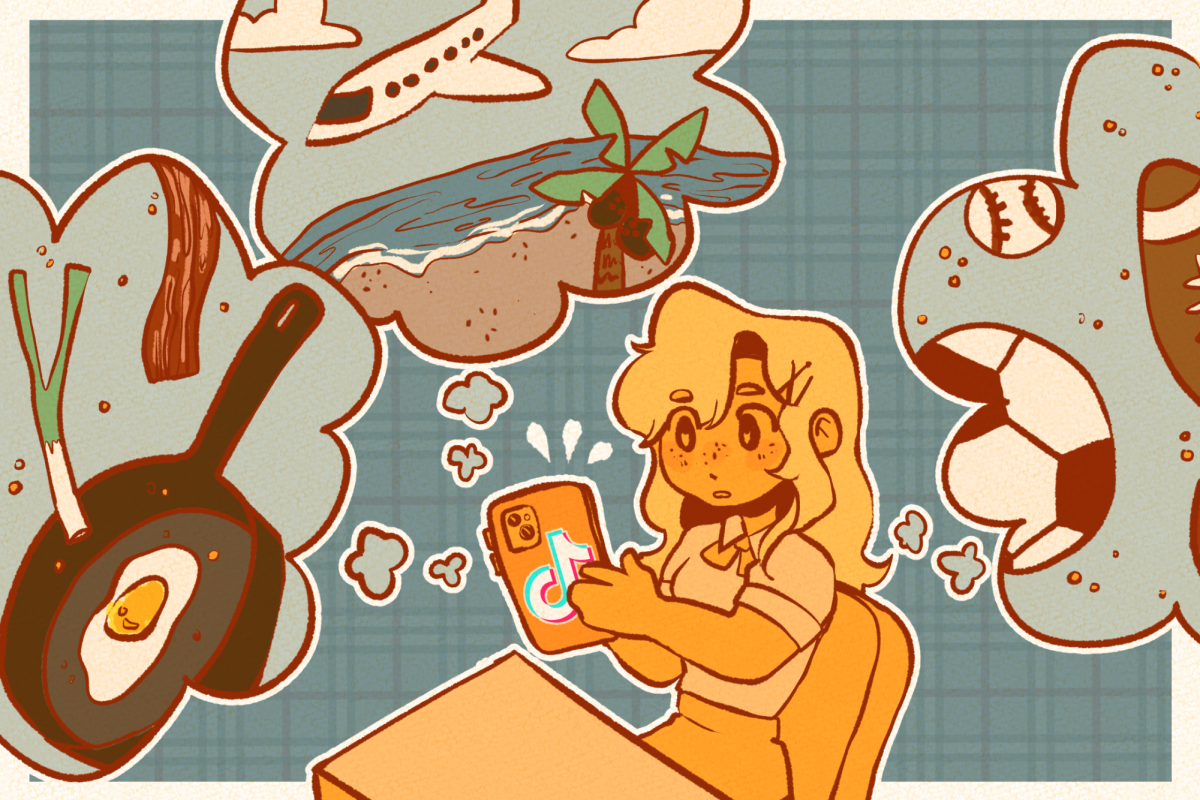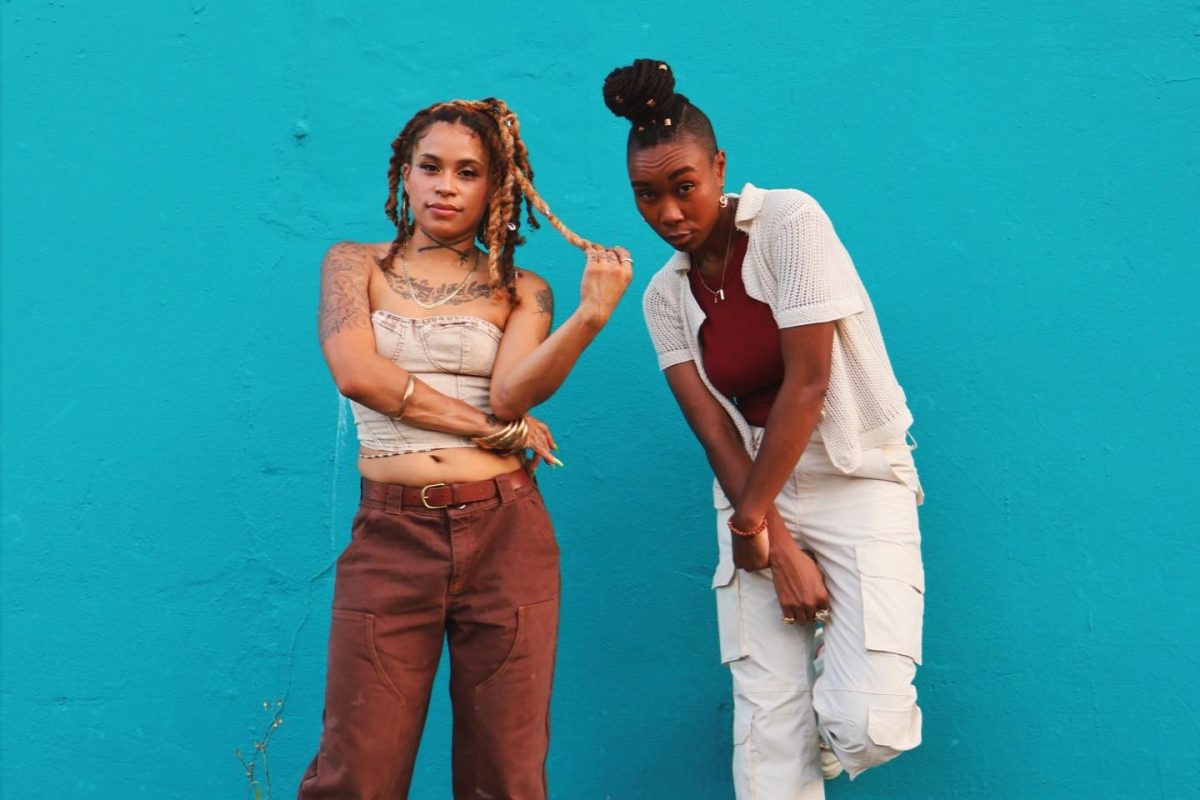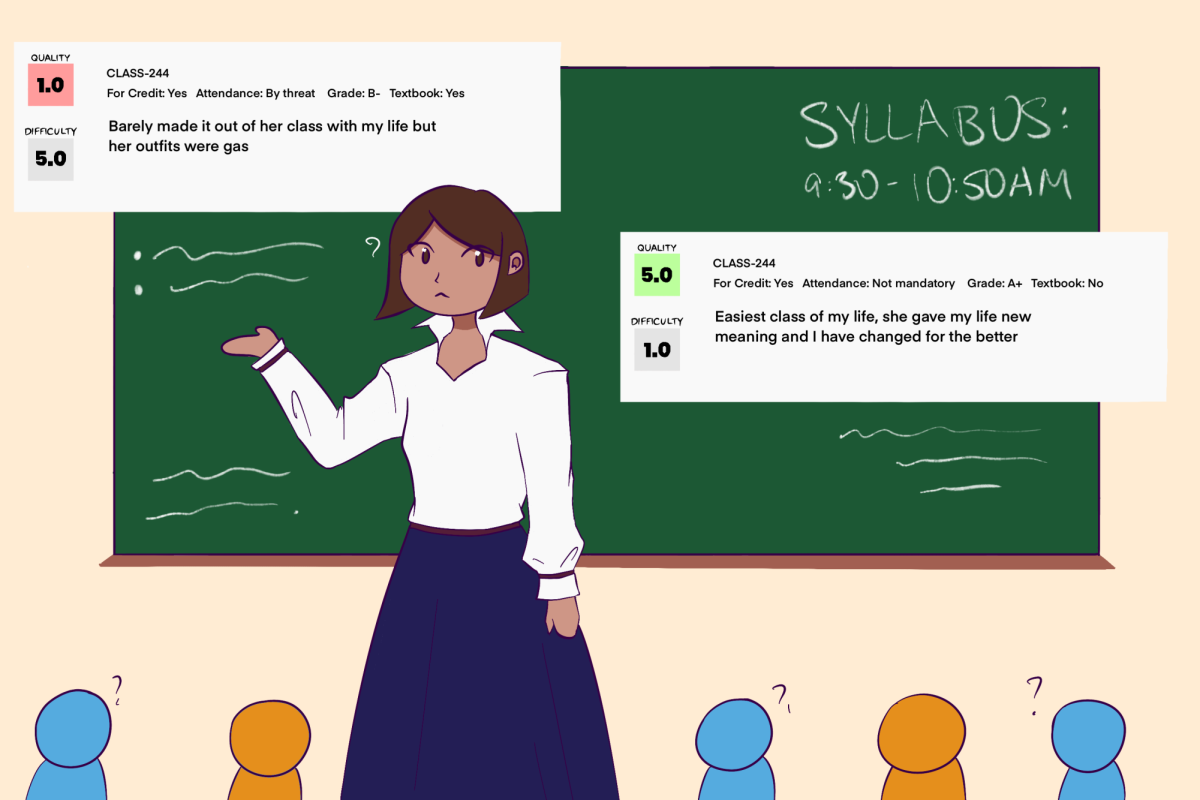The Earth didn’t even rotate once on its axis during TikTok’s brief ban in the United States, but the popular video-sharing app’s temporary dormancy still had seismic ramifications on the nation. The University and surrounding community was certainly no exception.
“I thought I was going to be disconnected from the world,” said Ili Aissa, freshman in LAS.
TikTok boasts over a billion monthly users, roughly 12% of the world’s population. The app is prevalent on college campuses, with an estimated 47% of college students using it daily. The threat of its absence left many students with a void, not just in entertainment but also in community.
Since President Donald Trump first proposed a ban on TikTok in 2020, rumblings of the Chinese-owned app becoming unavailable in America circulated. The app was briefly banned and unbanned in a head-spinning political drama that strangely culminated in access to the app being restored by Trump’s intervention.
For some, such as Manuel Flores, freshman in ACES, there’s reason to believe there was a method to the madness.
Get The Daily Illini in your inbox!
“I really think (the TikTok ban) was more of a good way to get politicians into these kids’ heads,” Flores said. “It was just a strong way to influence young kids into being interested in politics and stuff because I feel like it is a very political issue.”
Regardless of the overarching motives behind the ban and subsequent repeal, the ripples caused by the chaos impacted some University students on a personal level, such as Mariam Tayebi, freshman in LAS.
“(The ban) made me realize how much I rely on TikTok for literally everything in my life,” Tayebi said. “Every single sector of life I use TikTok for, which is actually kind of crazy.”
One of the most vital of those sectors for Tayebi and Aissa is the ability to find community through the app’s global reach.
“We’re both North African, so it helped us connect to our culture and other people in the world,” Tayebi said. “Because there’s not a lot of North Africans in America. Even just music, culture, I have made all my friends from other places literally just from TikTok.”
Not only did the ban impact the lives of local TikTok consumers, but it also shook the routines of those who harnessed it through content creation.
One such creator is Penelope Gregory, University alum and current social team lead at Bold.org, a company that matches high school and college students with scholarships.
While the company relies on TikTok significantly, Gregory refused to let the impending ban shift her team’s focus. She tells her team to continue business as usual and trusts that Bold.org’s engagement can weather the storm due to its strong social media presence on different platforms.
While Gregory could stay the course in her corporate ventures, she still experienced turmoil in her own content escapades, especially as a member of TikTok’s Creator Rewards Program.
“It didn’t affect my corporate job because we have so many other platforms, but the side hustle was gone for 12 hours, which was definitely interesting to feel,” Gregory said.
Similar to Aissa and Tayebi, briefly losing the app was an emotional experience for Gregory.
“The last couple hours before TikTok was being banned, I was on TikTok the entire time, really soaking it in,” Gregory said. “It feels dramatic to say, but I’ve never experienced an app close that I cared about … So, I felt a very dystopian feeling.”
Other creators, like fellow recent University graduate Prajeet Tripathy, who generates lifestyle, fitness and other content and hopes to make it a full-time career, echoed that sentiment.
“You see all these news articles, and you’re starting to freak out because you’re like, ‘Wait, this is probably the number one platform getting a lot of my following and a lot of my views from,’” Tripathy said.
According to Gregory, the success of creators like Tripathy on TikTok is no accident, with the app providing unique features and unrivaled potential for views.
“The algorithm is so unique in the ‘For You’ page,” Gregory said. “It’s different than Instagram’s Reels or YouTube shorts, and the ability to go viral is definitely something on TikTok that has helped us a lot.”
However, much like Bold.org’s reliance on other platforms helped it withstand the threat of TikTok’s departure, Tripathy saw the situation as an opportunity for growth.
“Since transferring to Instagram Reels and YouTube shorts, I’ve been having huge success on both those platforms — as much as I’ve been getting on TikTok,” Tripathy said. “So, now that TikTok is back, it enhances all of it and all my strategies going forward.”
But while the threat of the ban had loomed for years, its brevity was met with surprise and relief.
“It was kind of anticlimactic,” Tayebi said. “Like I was expecting to be depressed for a day, and then I wake up and was like, ‘Oh.’”
Though the app is back online and business continues as usual, the chaos of its half-day shutdown won’t soon be forgotten, especially by those who rely on it.
“Luckily, it came back, and we’re able to keep going, but it was definitely a hectic 12 hours to be working in social media,” Gregory said.










